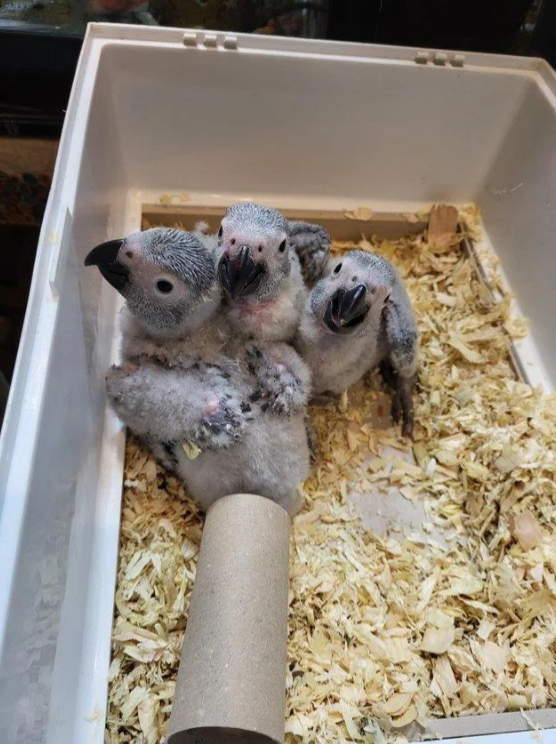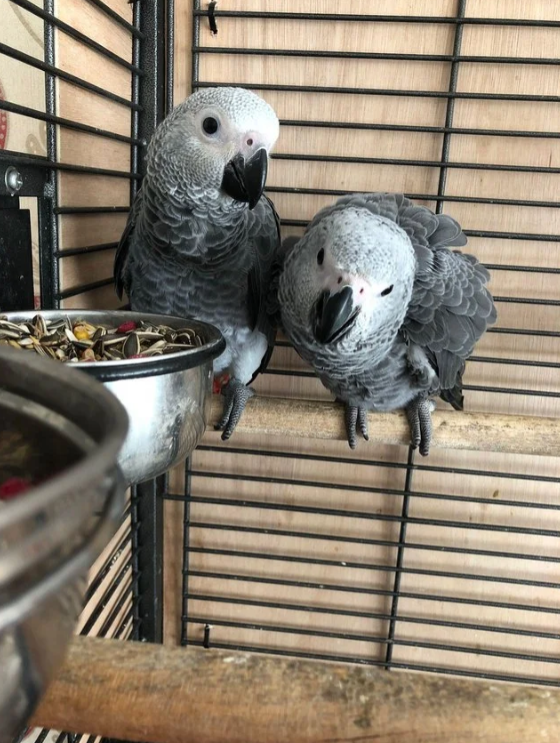If you’ve been searching for a baby African grey parrot for sale in London, you’ve come to the right place! These young parrots are known for their extraordinary intelligence, endearing personalities, and remarkable ability to mimic speech. However, raising a baby African grey comes with its own set of challenges and rewards. This blog post will guide you through the essentials of owning a baby African grey parrot, covering everything from choosing the right bird to ensuring optimal care and nutrition.
Why Choose a Baby African Grey Parrot?
Owning a baby African grey parrot offers a unique opportunity to build a strong bond from a young age. These parrots are highly sociable, and getting one as a baby ensures that you can shape its personality and behavior as it matures.
Here’s why opting for a baby African grey parrot for sale in London might be the best choice for you:
| Feature | Benefits |
|---|---|
| Bonding | Young African greys are more adaptable and form stronger emotional bonds with their owners. |
| Training | It’s easier to train a baby African grey, as they are more receptive to learning new behaviors. |
| Long Lifespan | You’ll have the joy of raising a bird that can live for 50+ years, becoming a lifelong companion. |
| Speech Development | Baby African greys often start mimicking sounds early, making it a joy to watch their language skills grow. |
What to Expect When Buying a Baby African Grey Parrot in London
When purchasing a baby African grey parrot for sale in London, it’s essential to know what to look for to ensure you’re getting a healthy and well-socialized bird. Here are some key factors:
Characteristics of a Healthy Baby African Grey Parrot
| Key Factor | What to Look For |
|---|---|
| Feather Condition | Smooth, shiny, and fully grown feathers indicate good health. |
| Activity Level | A healthy baby will be curious, active, and interactive. |
| Bright Eyes | The bird should have clear, bright eyes free of discharge. |
| Weight | Ask the breeder for the bird’s current weight and make sure it’s within a healthy range. |
A reputable breeder will be transparent about the bird’s health and provide you with necessary documentation, such as hatch date, medical records, and care instructions.

Caring for a Baby African Grey Parrot: The Basics
Owning a baby African grey parrot means being prepared to provide the proper care and attention it needs to thrive. Here are some essential elements to keep in mind.
Diet and Nutrition
Nutrition plays a critical role in the development of a baby African grey parrot. Their diet should be well-balanced and include a variety of nutrients.
| Food Type | Examples | Feeding Frequency |
|---|---|---|
| Pellets | High-quality parrot pellets | Daily |
| Fresh Fruits | Apples, pears, bananas, berries | 2-3 times per week |
| Vegetables | Leafy greens, carrots, bell peppers | Daily |
| Nuts (unsalted) | Almonds, walnuts, pistachios (small amounts) | Occasional treats |
It’s essential to introduce a variety of foods to ensure your baby parrot gets the right nutrients for growth. Avoid feeding your bird any toxic foods such as chocolate, avocado, or caffeine.
Housing and Environment
Creating a comfortable and stimulating environment for your baby African grey parrot is crucial to its development and well-being.
| Aspect | Recommendations |
|---|---|
| Cage Size | Minimum: 60cm x 90cm x 120cm |
| Bar Spacing | 1.5 to 2.5 cm to prevent escape or injury |
| Perches | Provide a variety of perches in different sizes and textures to promote foot health. |
| Toys and Enrichment | Baby African greys need mental stimulation, so provide toys that encourage foraging, climbing, and problem-solving. |
The right housing setup ensures your bird remains engaged and happy. Rotate toys regularly to prevent boredom and maintain cleanliness by cleaning the cage and toys weekly.
Training and Socializing Your Baby African Grey Parrot
Training a baby African grey parrot is a rewarding experience. Young parrots are naturally curious and eager to learn, which makes early training and socialization crucial.
Training Tips for Baby African Greys
| Training Aspect | Approach |
|---|---|
| Positive Reinforcement | Use treats and praise to reward good behavior and mimicry. |
| Short Training Sessions | Keep training sessions between 10 to 15 minutes to maintain attention. |
| Repetition and Consistency | Practice commands and tricks daily for consistent results. |
African grey parrots thrive on mental stimulation, and regular training will keep them engaged and help prevent behavioral problems. Early training also enhances their ability to mimic speech, so be prepared to hear your baby grey parrot start picking up words at a young age.
Socialization
It’s essential to expose your baby African grey parrot to various environments, people, and other pets early in its life. This helps in building a well-adjusted, sociable bird that is comfortable in different settings.
Health Considerations for Baby African Grey Parrots
Young parrots are generally healthy, but it’s crucial to monitor their development closely. Here are some common health issues to watch for in baby African greys:
| Health Issue | Symptoms | Prevention/Treatment |
|---|---|---|
| Feather Plucking | Over-preening or plucking feathers | Provide mental stimulation and a varied diet |
| Respiratory Infections | Labored breathing, nasal discharge | Maintain cage cleanliness, avoid drafts |
| Calcium Deficiency | Weak bones, poor feather development | Provide calcium-rich foods like kale |
Regular vet check-ups are important to catch any potential health issues early. Ensure that your baby African grey parrot is seen by an avian vet who can guide you through health care and vaccinations.
Finding a Baby African Grey Parrot for Sale in London
When searching for a baby African grey parrot for sale in London, it’s important to choose a reputable breeder or pet shop that prioritizes the health and welfare of their birds. Parrot Haven, for instance, offers well-bred and ethically raised African grey parrots in the UK.
Here’s what to look for in a reputable breeder:
| Breeder Checklist | Importance |
|---|---|
| Experience and Knowledge | Ensure the breeder is experienced with African grey parrots and their specific needs. |
| Health Guarantees | A responsible breeder will provide health records and offer guarantees for any hereditary issues. |
| Socialization | Ask about how the babies are socialized with humans and other birds. |
Buying from a trusted breeder ensures that your bird is healthy, well-cared-for, and ready to join your home.
Frequently Asked Questions
1. How much does a baby African grey parrot cost in London?
A baby African grey parrot can range in price from £1,200 to £2,500, depending on the breeder, lineage, and socialization level.
2. How often should I feed my baby African grey parrot?
You should feed your baby African grey parrot daily, offering a balanced mix of pellets, fruits, vegetables, and occasional nuts.
3. How do I train my baby African grey parrot?
Training should begin early, using positive reinforcement methods and short, consistent sessions to encourage learning and good behavior.
Conclusion
Owning a baby African grey parrot for sale in London is an exciting and rewarding experience, especially when you’re prepared to offer the care, attention, and training they need to thrive. These intelligent and affectionate birds can make wonderful lifelong companions, provided they are given the proper diet, environment, and socialization.
If you’re considering bringing a baby African grey parrot into your home, be sure to choose a reputable breeder and be ready to commit to their care for many years to come!


